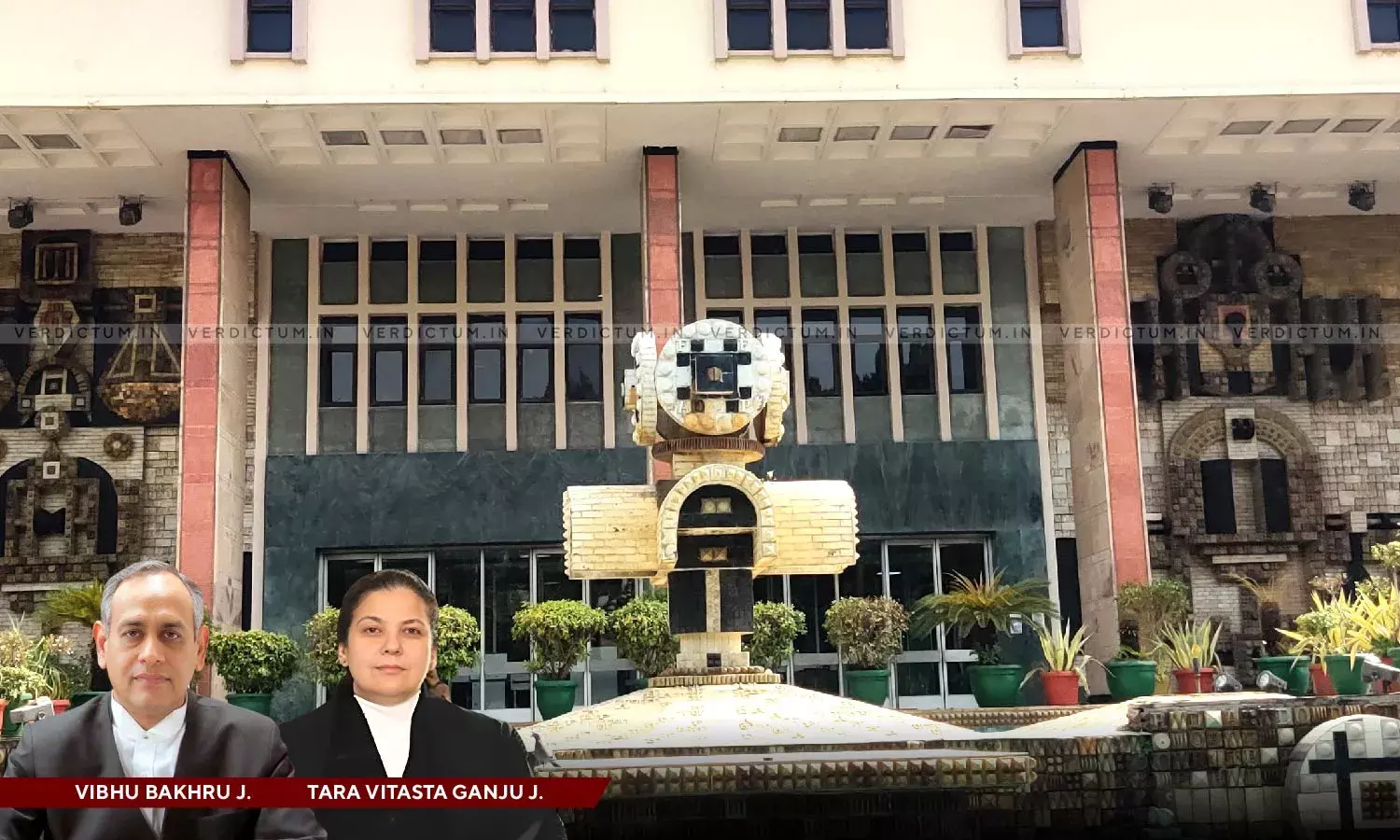Court Can Award Compensation For Breach If A Contract Has Become Incapable Of Specific Performance: Delhi HC
The Delhi High Court elucidated that as per Section 21 of the Specific Relief Act, 1963 (SRA), the Court may award compensation for breach, if a contract has become incapable of specific performance.
The Court was deciding an appeal under Section 37 of the Arbitration and Conciliation Act, 1996 (A&C Act) filed against the judgment of the Single Judge by which a petition under Section 34 of A&C Act was dismissed and the arbitral award of the Sole Arbitrator was upheld.
A Division Bench comprising Justice Vibhu Bakhru and Justice Tara Vitasta Ganju observed, “A plain reading of the Explanation to sub-Section (5) of Section 21 of the Specific Relief Act, 1963 shows that the Court may exercise its power to award compensation for breach, if a Contract has become incapable of specific performance. In Urmila Devi v. Mandir Shree Chamunda Devi, while relying on the judgment in the case of Jagdish Singh v. Natthu Singh, the Supreme Court held that where a contract has become impossible to perform for no fault of the Plaintiff, Section 21 of the Specific Relief Act, 1963 enables the Court to award compensation.”
Advocate Tushar Sannu represented the appellant while Advocate Tejas Karia represented the respondent.
Brief Facts -
The appellant i.e., Deputy Commissioner of Police floated a tender and invited bids for the installation of a CCTV system in the Walled city, Delhi in the year 2006. The bid submitted by the respondent company was accepted and the appellant placed an order for supply and installation of the CCTV system to the respondent. A bank guarantee of Rs. 11,25,000/- as a security for performance of the Contract was also submitted by the respondent in favour of the appellant. However, disputes arose among the parties and the appellant sent a show cause notice on account of delay in completion of works under the contract. The respondent replied by attributing that the delay was due to the non-availability of permission from civic agencies for digging, road cutting, and laying of cables. Resultantly, the appellant terminated the contract, forfeited the respondent’s bank guarantee, and awarded the works under the contract to a third party.
The respondent was blacklisted by the appellant for a period of three years and this led to the respondent invoking the arbitral clause in the contract between the parties. The Court appointed a Sole Arbitrator and the respondent sought damages which included 60% price of the value of the equipment and a claim of loss of reputation and business opportunities. It also sought relief for specific performance of the contract. Since the contract was already awarded to a third party, the relief for specific performance was not granted to the respondent. The Arbitral Tribunal found that the appellant illegally terminated the contract and thus awarded compensation to the respondent. The appellant filed a petition under Section 34 of A&C Act but the same was dismissed by the Single Judge and hence, he challenged it before the Division Bench.
The High Court after hearing the contentions of the counsel remarked, “Interpretation of a contract is a matter for an Arbitrator to determine. Even if such interpretation gives rise to an erroneous application of law, the Courts will generally not interfere, unless the error is palpably perverse or illegal and goes to the root of the matter. It is therefore to be seen whether the interpretation given by the Arbitral Tribunal is such that a fair minded or reasonable person could conclude as well, or if the interpretation by the Arbitral Tribunal is patently illegal.”
The Court noted that the Arbitral Tribunal examined and interpreted the provisions of the Contract and found the termination of the Contract to be illegal and awarded damages to the respondent and the Single Judge upheld all the findings of the Arbitral Tribunal after examining the same. Hence, it said that the findings of the Arbitral Tribunal are not patently illegal or against public policy.
“We find that the interpretation given by the Arbitral Tribunal is given after a detailed examination of the pleadings and evidence. The view taken by the Arbitral Tribunal in its interpretation does not ignore any vital evidence. Merely because another interpretation is possible is not a ground to set aside an Award or part thereof”, it emphasised.
Accordingly, the Court dismissed the appeal and directed the Registry to release the amounts deposited by the appellant in favour of the respondent along with the interest accrued thereon.
Cause Title- The Deputy Commissioner of Police v. Score Information Technologies Ltd. (Neutral Citation: 2024:DHC:4891-DB)
Appearance:
Appellant: Advocates Tushar Sannu, Ankita Bhadoriya, and Stayam.
Respondent: Advocates Tejas Karia, Prakhar Deep, Nishant Doshi, and Nitin Sharma.




